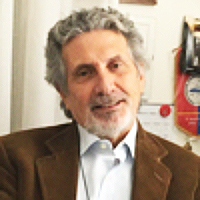Rehabilitation of proximal humerus fractures: An environmental scan of Canadian physiotherapy practice patterns
Published on: 20th September, 2017
OCLC Number/Unique Identifier: 7286350490
Background: Proximal humerus fractures (PHFs) are common injuries particularly in older adults. Evidence-based protocols for PHF rehabilitation are lacking and physiotherapists use a variety of interventions.
Purpose: To determine practice patterns and perceptions of physiotherapists who treat adults with PHF in Ontario, Canada.
Method: A paper and pencil survey asking about respondent demographics and management of Neer Group 1 (minimally/nondisplaced) and complex (displaced 3- and 4-part) PHF was mailed to 875 randomly selected physiotherapists who were registered with the College of Physiotherapists of Ontario in 2013/2014 and working in practice areas likely to be accessed by adults with PHF.
Results: The response rate was low (10%); 83 physiotherapists completed the survey - 80% had experience managing PHF. Respondents treated 1-5 individuals with PHF annually; more treated Neer Group 1 PHF (89%) than complex PHF (68%). Most individuals with PHF were older than 60 years (64%), female (76%) and accessed physiotherapy through a doctor’s referral (91%) more than 1 month post injury (33%).
Main findings: Physiotherapists manage PHF using multi-component interventions and a minimum of 76% include the following elements: education and progression of passive, active assisted, active range of motion exercises and muscle retraining to build coordination and strength. Use of other elements was variable. The main factors influencing the treatment plan were the ability of the individual with PHF to comply, bone quality, and fracture type. Most respondents were unsure that there is sufficient PHF rehabilitation literature to guide treatment.
Conclusions:This environmental scan is the first North American study to document practice patterns and attitudes of physiotherapists providing PHF rehabilitation. Elements used by physiotherapists in Ontario treating small numbers of individuals with Neer Group 1 or complex PHFs each year align well with the limited PHF rehabilitation literature available.
Potential implications:Multi-disciplinary collaborations to design and conduct large, high quality, multi-centre prognostic studies and RCTs that evaluate the effectiveness of key aspects of non-surgical PHF rehabilitation in various patient groups are needed. Meanwhile, consensus guidelines should be developed in the context of region-specific physiotherapy service models to inform best practice in PHF rehabilitation management.




